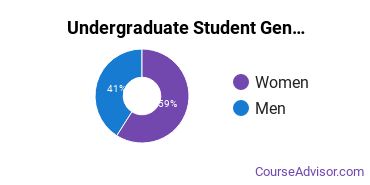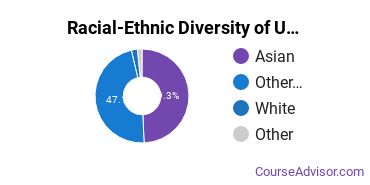University of Guam Overview
Located in Mangilao, Guam, University of Guam is a public institution. Mangilao is considered a suburb and offers tranquility and safety near the excitement of a city center.
What Is University of Guam Known For?
- The master's degree is the highest award offered at UOG.
- In a recent academic period60% of the faculty were full-time.
Where Is University of Guam?

Contact details for UOG are given below.
| Contact Details | |
|---|---|
| Address: | 303 University Drive, Uog Station, Mangilao, GU 96923 |
| Phone: | 671-735-2900 |
| Website: | www.uog.edu |
How Do I Get Into UOG?
You can apply to UOG online at: https://www.uog.edu/admissions/apply-online
Can I Afford University of Guam?
The net price is calculated by adding tuition, room, board and other costs and subtracting financial aid.
Student Loan Debt
Almost 66% of college students who graduated with the class of 2018 took out student loans, but that percentage varies from school to school. At UOG, approximately 14% of students took out student loans averaging $4,423 a year. That adds up to $17,692 over four years for those students.
Explore Best Ranked Schools for You
University of Guam Undergraduate Student Diversity

There are also 331 graduate students at the school.
Gender Diversity
Of the 2,403 full-time undergraduates at UOG, 40% are male and 60% are female.

Racial-Ethnic Diversity
The racial-ethnic breakdown of University of Guam students is as follows.

| Race/Ethnicity | Number of Grads |
|---|---|
| Asian | 1,173 |
| Black or African American | 12 |
| Hispanic or Latino | 16 |
| White | 48 |
| International Students | 13 |
| Other Races/Ethnicities | 1,141 |
Geographic Diversity
Guam students aren't the only ones who study at University of Guam. At this time, 2 states are represented by the student population at the school.
Over 15 countries are represented at UOG. The most popular countries sending students to the school are South Korea, Japan, and Taiwan.
University of Guam Undergraduate Concentrations
The table below shows the number of awards for each concentration.
References
*The racial-ethnic minorities count is calculated by taking the total number of students and subtracting white students, international students, and students whose race/ethnicity was unknown. This number is then divided by the total number of students at the school to obtain the racial-ethnic minorities percentage.
- College Factual
- National Center for Education Statistics
- Image Credit: By melanzane1013 under License
More about our data sources and methodologies.
